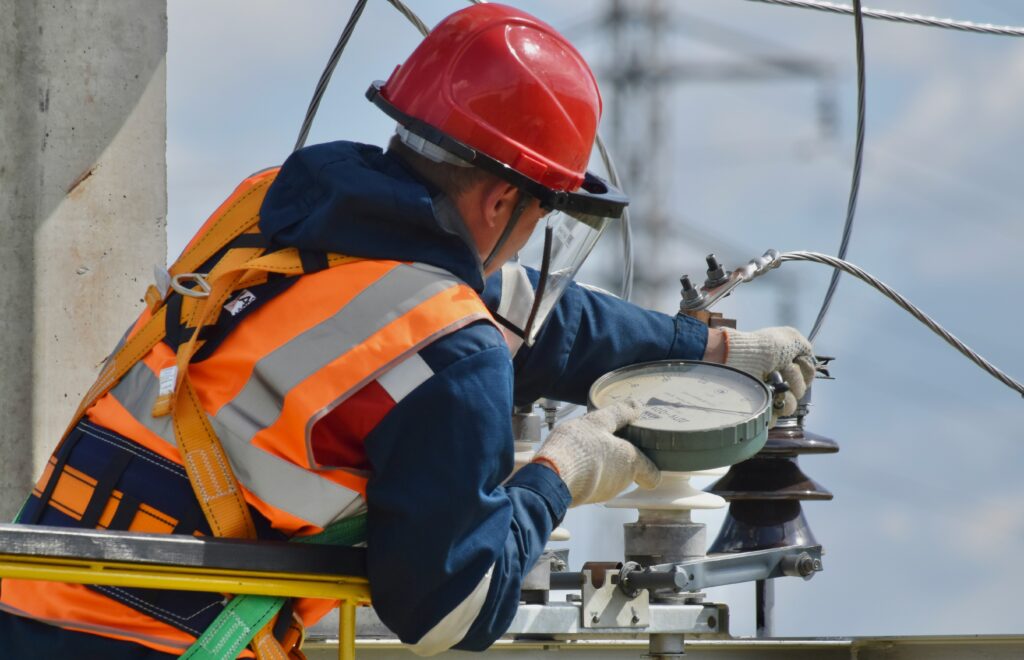Summary: An electrician is a type of electrical worker who specializes in installing and maintaining electrical systems in buildings and facilities. In contrast, electrical worker is a broader term that includes electricians (also called wiremen), lineworkers, installer technicians, renewable energy technicians, and other roles in the electrical trades.
If you’ve ever wondered about the difference between an electrician and an electrical worker, you’re certainly not alone. These terms are often used interchangeably, but, as similar as they sound, they don’t mean exactly the same thing.
While the terms electrician and electrical worker are related, there’s an important distinction in what they mean and who they refer to.
So, what exactly do they mean, and what’s the difference between the two? Let’s explore.
What Is an Electrician?
Electrician is a commonly used term that typically refers to a specific type of electrical worker known within the industry as a wireman.
Wiremen are highly trained tradespeople who plan, install, maintain, and repair electrical systems that deliver power where it’s needed. Their work ensures that homes, offices, factories, hospitals, and schools have safe, functional wiring and equipment.
Their work can include:
● Wiring new buildings during construction
● Upgrading or replacing old electrical panels
● Installing lighting, outlets, and specialized equipment
● Reading blueprints and electrical diagrams to lay out complex systems
● Ensuring everything meets electrical codes and safety standards
Wiremen work in a variety of environments, including residential neighborhoods, commercial spaces, factories, large construction sites, and more.
While all electricians are electrical workers, not all electrical workers are electricians.
What Is an Electrical Worker?
Electrical worker is the broader, umbrella term that covers everyone in the electrical trades, including electricians, wiremen, and other specialized roles.
Other types of electrical workers include:
● Lineworkers, who build and maintain the high-voltage power lines and substations that keep entire towns and cities connected. They work outdoors, often in extreme conditions, restoring power after storms or maintaining and upgrading infrastructure.
● Installer Technicians, who focus on low-voltage systems like alarm systems, telecommunications, and data networks. They keep the modern world connected and secure.
● Renewable Energy Technicians, who install solar power systems on rooftops and in solar fields, help homes and businesses generate clean energy.
If someone says they’re an electrical worker, it means they work in the electrical field, but their specific role could be quite different from an electrician’s work on building wiring systems.
Why Are the Differences in Electrical Work Important?

Understanding the difference between electricians and electrical workers isn’t just about using the right words at the right time; understanding the difference helps us appreciate the scale, complexity, and importance of the entire electrical field.
While electricians are often the face of electrical work for most people, they’re only one part of a much larger team. Every team member, whether they’re fixing powerlines, maintaining the substations, or installing smart home systems, has a huge role in making sure that the light actually turns on when you flip the switch.
Is Electrical Work a Good Career Choice?
A career in the electrical trades is a fantastic choice. No matter the role, careers in electrical work offer security, stability, great pay, rich benefits, purposeful work, and limitless opportunities.
And the best part? It’s easy to get started! Registered apprenticeship programs allow you to get started learning and earning from day 1.
Learn more and get started with a career in the electrical trades today!
